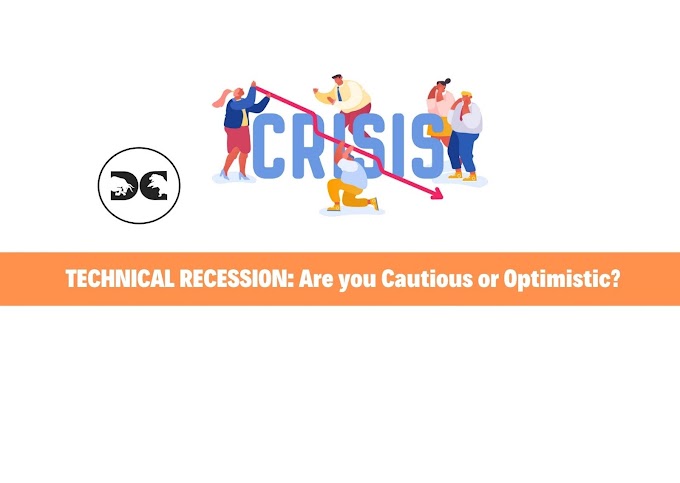So what is US Federal Reserve and how changes in US impact Indian monetary system?
What Is the Federal Reserve System (FRS)?
The Federal Reserve System (FRS), often just called "the Fed," is the central bank of the United States and arguably the most powerful financial institution in the world. It was founded to provide the country with a safe, flexible, and stable monetary and financial system. The Fed is composed of 12 regional Federal Reserve Banks that are each responsible for a specific geographic area of the U.S
What is a federal rate cut?
When the Fed "cuts rates," this refers to a decision by the FOMC to reduce the federal fund's target rate. The target rate is a guideline for the actual rate that banks charge each other on overnight reserve loans. Rates on interbank loans are negotiated by the individual banks and, usually, stay close to the target rate. The target rate may also be referred to as the "federal funds rate" or the "nominal rate."
The federal funds rate is important because many other rates, domestic and international, are linked directly to it or move closely with it.
What will be the impact on emerging market economies, including India?
Theoretically, a rate cut in the US should be positive for emerging market economies (EMEs), especially from a debt market perspective. Emerging economies such as India tend to have higher inflation and, thereby, higher interest rates than those in developed countries such as the US and Europe. As a result, FIIs would want to borrow money in the US at low interest rates in dollar terms, and then invest that money in bonds of emerging countries such as India in rupee terms to earn a higher rate of interest.
When the US Fed cuts its interest rates, the difference between the interest rates of the two countries increases, thus making India more attractive for the currency carry trade.
A rate cut by the Fed would also mean a greater impetus to growth in the US, which could be positive news for global growth. But this could also translate into more equity investments in the US, which could temper investor enthusiasm for emerging market economies in a proportionate manner.
Theoretically, a rate cut in the US should be positive for emerging market economies (EMEs), especially from a debt market perspective. Emerging economies such as India tend to have higher inflation and, thereby, higher interest rates than those in developed countries such as the US and Europe. As a result, FIIs would want to borrow money in the US at low interest rates in dollar terms, and then invest that money in bonds of emerging countries such as India in rupee terms to earn a higher rate of interest.
When the US Fed cuts its interest rates, the difference between the interest rates of the two countries increases, thus making India more attractive for the currency carry trade.
A rate cut by the Fed would also mean a greater impetus to growth in the US, which could be positive news for global growth. But this could also translate into more equity investments in the US, which could temper investor enthusiasm for emerging market economies in a proportionate manner.
Should investors be concerned?
If global liquidity flow has boosted Indian markets over the last one year, experts say the rise in interest rates in the US and tapering of the monthly bond buying programme (currently $120 billion/month) may impact stock market movement. These factors, and rising inflation in the domestic market, will be key for equity market movement alongside the economic recovery and growth.
The recovery level of the Indian economy at the time RBI hikes rates rate — which may still be some time away — will be critical. The timing and pace of the US interest are hiked and tapering of the bond buying programme, too, will be critical for equity markets in India, which may witness an outflow of funds following the announcement.
If the Fed’s hawkish tone didn’t go well with the equity investors across the globe, the impact on Indian stock markets was not too pronounced. Pankaj Pandey, head of research at ICICIdirect.com, said that while interest rates will be raised in future, he doesn’t expect a knee-jerk reaction. “While inflation is going up, the underlying (factor) that is driving it is the economic rebound both in the US and in India. While the US will give advance warning before raising rates and tapering of the bond purchase programme, even in India RBI is looking to ignore inflation for some period of time. I do not see it as a big negative for the market if the economy is doing well,” said Pandey.
If global liquidity flow has boosted Indian markets over the last one year, experts say the rise in interest rates in the US and tapering of the monthly bond buying programme (currently $120 billion/month) may impact stock market movement. These factors, and rising inflation in the domestic market, will be key for equity market movement alongside the economic recovery and growth.
The recovery level of the Indian economy at the time RBI hikes rates rate — which may still be some time away — will be critical. The timing and pace of the US interest are hiked and tapering of the bond buying programme, too, will be critical for equity markets in India, which may witness an outflow of funds following the announcement.
If the Fed’s hawkish tone didn’t go well with the equity investors across the globe, the impact on Indian stock markets was not too pronounced. Pankaj Pandey, head of research at ICICIdirect.com, said that while interest rates will be raised in future, he doesn’t expect a knee-jerk reaction. “While inflation is going up, the underlying (factor) that is driving it is the economic rebound both in the US and in India. While the US will give advance warning before raising rates and tapering of the bond purchase programme, even in India RBI is looking to ignore inflation for some period of time. I do not see it as a big negative for the market if the economy is doing well,” said Pandey.










Social Plugin